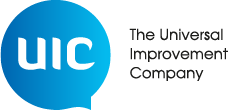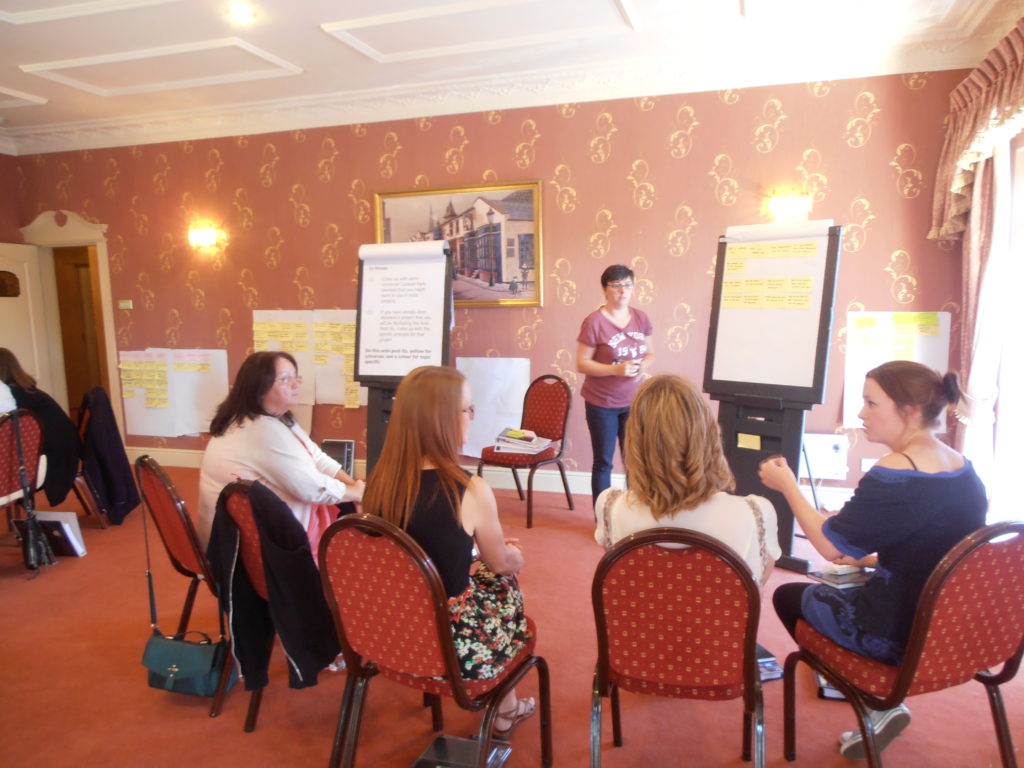Facilitator Development Programme
Background and who should attend
Using UIMPROVE Facilitators in meetings and projects dramatically improves productivity and effectiveness, and a strategically deployed pool of Facilitators will have a major impact in an organisation. The aim of this programme is to teach participants the UIMPROVE approach to organisational improvement and provide them with the knowledge and skills to facilitate this. The UIC has more than 15 years experience of training and coaching people to undertake this role in a wide variety of organisations.
The Facilitator Development Programme is specifically designed for people who will have to take up a formal Facilitator role in meetings or projects. It is a 9-day programme in a 3-day + 3-day + 3-day format. The period between each module is roughly 8 weeks and this allows participants to gain experience of using what they have learned for real between the modules. Modules 2 and 3 incorporate review and planning for real pieces of work.
The role of Facilitator is usually a ‘part-time’ activity, taken on in addition to the ‘day job’.
Parallel activity
We have found that training up line managers in these skills alongside creating a pool of Facilitators to help them with tricky or complex meetings and projects produces the best results. Courses such as Universal Improvement Skills and the Strategic Improvement Programme teach line managers to use the skills in their everyday work including meetings and projects and also how to make best use of Facilitators.
Want the skills without the formal role?
Note especially that this programme is only for people who will be able to take on the formal role of Facilitator in addition to their ‘day job’. Due to the nature of the content – in particular the requirement to carry out formal facilitation assignments – it is not suitable for people solely looking for a development opportunity.
The UIMPROVE definition of facilitation
The UIMPROVE definition contrasts with many others that focus on the ‘soft’ side of group dynamics. Our broadest definition of facilitation comprises three main areas:
| (1) | Structure – this means being able to put in place a good structure in a meeting or project to achieve whatever it is a group wants to do. Poor structure makes for poor group working. |
| (2) | Tools and techniques – this means having a repertoire of alternatives to just sitting around a table talking about things. Lack of tools and techniques also leads to poor group working. |
| (3) | Group working skills. |
We have found that traditional ‘facilitation skills’ place all the emphasis on group working skills and this is simply not enough. All the best intentions in the world do not lead to change and improvement. What does is having a good structure and a facilitated, participative approach.
We have also found that the traditional approach to facilitation is very reactive – Facilitators turn up on the day, sprinkle some group working magic dust and then disappear. A UIMPROVE Facilitator will employ a ‘before’, ‘during’ and ‘after’ approach. Careful planning means that the meeting or project is well structured and suitable tools are identified in advance. Review means that lessons are learned and actions are carried out.
What are the benefits of having a pool of Facilitators in an organisation?
Strategy
| • | The resource can be aligned with organisational strategy and focused where the greatest need/return is |
| • | Illustrates top management commitment to improvement |
The rate of improvement
| • | Creates a ‘critical mass’ for improvement |
| • | Increases organisational capacity and the rate of improvement |
| • | Builds on and supports the work done through other UIMPROVE training courses |
| • | An internal resource is better for continuity and follow up |
Developing the organisation
| • | Taps into and develops the talent in the organisation |
| • | Promotes organisational learning |
| • | The skills are developed and retained within the organisation |
| • | Ensures a more structured approach to projects |
| • | Improves meetings |
| • | The skills are transferable to the ‘day job’ |
| • | Use of the skills is ‘contagious’ – they will spread through the organisation |
Developing individuals
| • | Gives individuals a broader view of the organisation through involvement in projects |
| • | Increases job satisfaction |
| • | Today’s Facilitators are tomorrow’s senior managers and directors |
Costs
| • | Costs less than external provision |
| • | The cost of training is soon recouped in the benefits the resource brings to the organisation |

